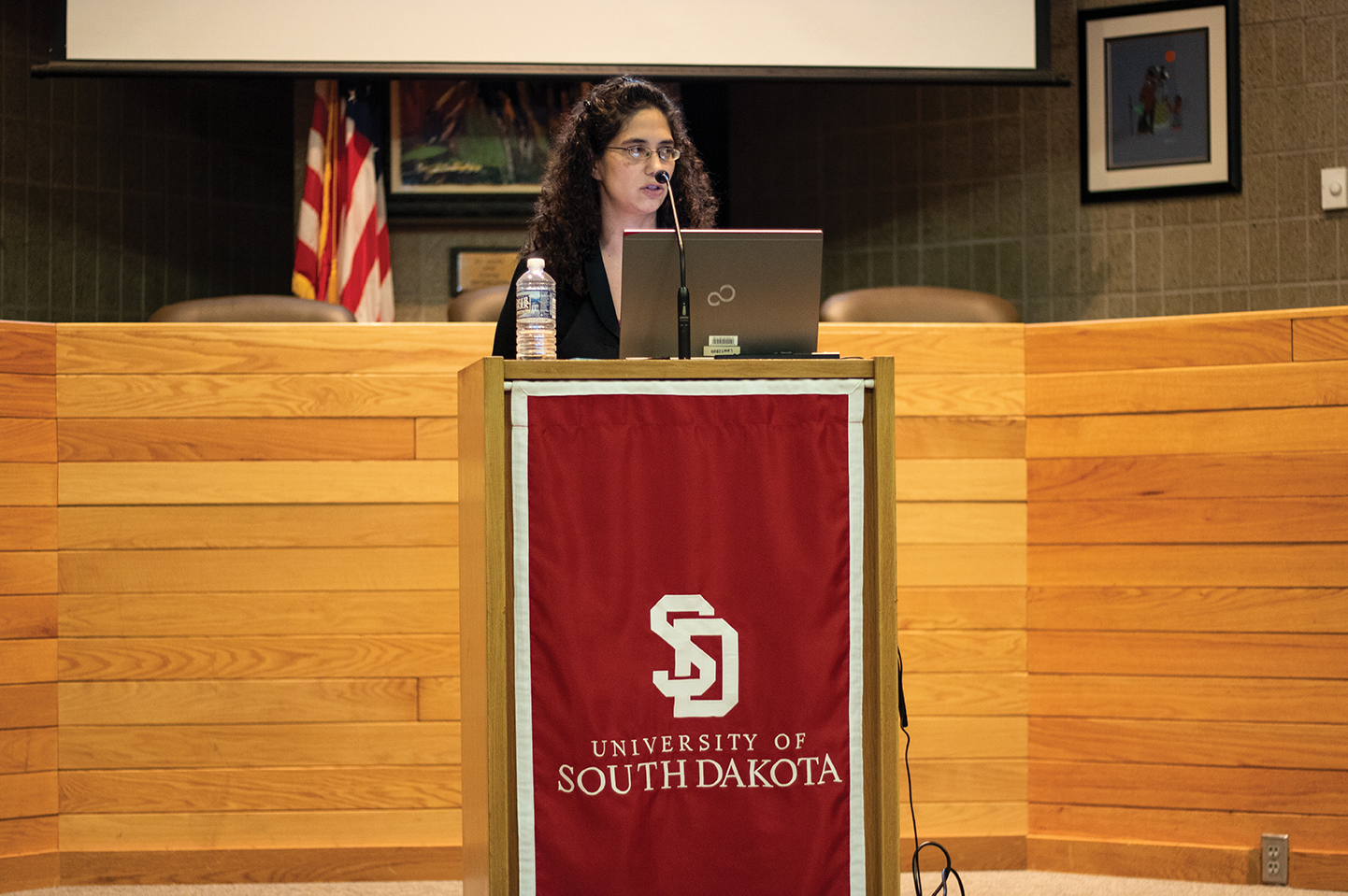
USD Law School celebrates Constitution Day
USD’s law school celebrated Constitution Day by inviting Nancy Chi Cantalupo, an assistant professor of law from Barry University, to lecture about due process and civil rights laws on the issue of sexual assault.
More than 60 students, faculty and community members attended the lecture in the law school courtroom on Monday afternoon.
Tiffany Graham, the law school’s associate dean of academic affairs, said the law school hosts a speaker for Constitution Day every year. Previous topics have included LGBT+ issues and executive power.
“Under federal law, any institution that receives federal funds has to honor Constitution Day, and so the law school is responsible to take the lead in terms of celebrating this particular event,” Graham said.
This year’s topic was gender violence and sexual assault, and why it should be looked at from a civil rights law perspective instead of a criminal law one.
Graham was in charge of selecting this year’s speaker and inviting her to the event.
Graham said she chose Cantalupo because of her different outlook on the issue of sexual assault and the campus’ interest in the topic.
“I like how she was thinking about this question in a really paradigm shifted way, where it is so common to think about sexual assault in these investigations in a criminal context,” Graham said.”But she’s saying no, let’s think about it more so from the civil rights perspective. I thought it was an interesting opportunity for students and the community at large to hear about those different approaches and to try to work out for themselves what they thought.”
Cantalupo said the topic of civil rights law versus criminal law in relation to sexual assault is relevant to students because of current events.
“It’s important because sexual violence is everywhere, it’s always been everywhere, but we feel even more like it’s everywhere these days because of Me Too, and because of the Title IX civil rights movement that’s been operating on college campuses since at least 2013,” Cantalupo said. “Now, politicians are being affected, and politicians are being ‘Me too-ed.’ Judge Kavanaugh, whose being nominated to the Supreme Court right now, is now being accused of having sexually assaulting someone when he was a high school student, so I think it’s relevant for all of those reasons.”
Krista Honomichl, a junior criminal justice and political science major, was an attendee at the lecture. She said the lecture opened her eyes to the differences in due process depending on criminal law or civil law.
“The topic of sexual harassment or sexual assault on campus brings in a lot of emotions, people get very emotional to it,” Honomichl said. “So then to step back and look at it more from the legal or civil process, and to understand it that way is really important for us to get outside of our emotions and actually understand how the process works.”
Marcus Ireland, a senior criminal justice, political science, and philosophy triple major, said this topic is relevant because of recent events on campus.
“I think it’s always nice when we get a speaker who comes in and actually speaks on a topic that’s pretty saliant on our campus,” he said. “We’ve been dealing with some issues that revolve around sexual misconduct and sexual assault the last two years, and so being able to hear from somebody who is actually educated on this type of topic, in a different way than what we are normally are thinking about… I think that’s good because it opens our perspective to recognizing what has to happen in certain ways.”
Ireland said the speaker helped clarify why the recent campus sexual assault case had the verdict that it did.
“Especially since the recent case that decided he was not guilty, and a lot of people were upset about it, but that just goes to show that the criminal justice system is not set up to benefit the victims or the survivors,” Ireland said. “It’s set up to benefit the community and the defendant.”

